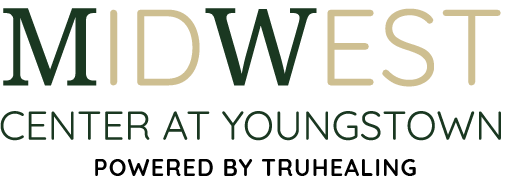If you have a loved one suffering from addiction, you may become frustrated or angry with them at times. This is to be expected, but it will not help encourage them to get treatment and may even make them defensive and resistant to getting help. Understanding that addiction is a disease can help you reframe your perception of what your loved one is going through. Learning more about the addiction can empower you with healthier ways to support a person who is addicted to drugs or alcohol while also setting boundaries to protect your own safety and well-being.
At Midwest Center at Youngstown, we understand how difficult it can be to deal with a loved one’s addiction. We provide support for addiction recovery in Ohio that extends to family members of the person suffering from substance use disorder. We realize the importance of bringing family into the recovery process and helping everyone heal together through therapy. Call us today at 844.544.0502 to learn more about how we incorporate family counseling into our addiction treatment programs.
Why Is Addiction a Disease?
When you think about a disease, you may imagine something like hepatitis or tuberculosis. You may picture someone who is sick with the flu or chickenpox. But you might not think of addiction as a disease. It can seem more like a bad habit, something someone chooses to do before getting in over their head. The fact is that diseases can present in many different forms, and addiction is no exception.
When referring to humans, a disease is defined as a condition that impairs normal functioning and presents particular signs and symptoms. Using this definition, it makes sense that addiction is now regarded as a disease because:
- It impairs the normal functioning of the brain.
- It impairs the normal functioning of the body.
- Some specific signs and symptoms reflect the existence of addiction.
So, is addiction is a disease? The simple answer is yes. It may not be treated in the same way as you would a cold or flu, but it does require treatment to help you or a loved one heal.
How Does Addiction Affect the Brain and Body?
Since some of the characteristics of a disease are the impairments of the functioning of the brain and body, it can be helpful to know exactly drug and alcohol addiction affects your brain and body:
- Destruction of the brain’s dopamine neurotransmitters can affect your ability to feel positive emotions from normal, healthy activities and situations.
- Damage to cognitive function can cause unexplained feelings of anger accompanied by unprovoked violent or aggressive behavior.
- Impairment of your metabolic function can result in drastic changes in weight.
- Damage to your respiratory system, causing a persistent cough and breathing difficulties.
- Damage to the heart and lungs from drugs or alcohol can leave these organs in a weakened state, leading to fatigue and chest pain after even minor physical exertion.
- Increased risk of heart attack and high blood pressure.
- Loss of motor coordination can result in symptoms similar to Parkinson’s disease.
- Impaired blood circulation can affect your body’s ability to heal from wounds, increasing the risk of infection.
- Permanent damage to or loss of teeth.
Midwest Center at Youngstown: Supporting Your Addiction Recovery in Ohio
If you or a loved one is suffering from the disease of addiction, it is important to understand that it is indeed a disease, and it has affected how your brain and body are functioning. Just like with any disease, you need the proper treatment to heal. Midwest Center at Youngstown can support your addiction recovery in Ohio with a range of treatment programs designed to accommodate your needs. Call us today at 844.544.0502 to find out how we can help you beat the disease of addiction once and for all.

